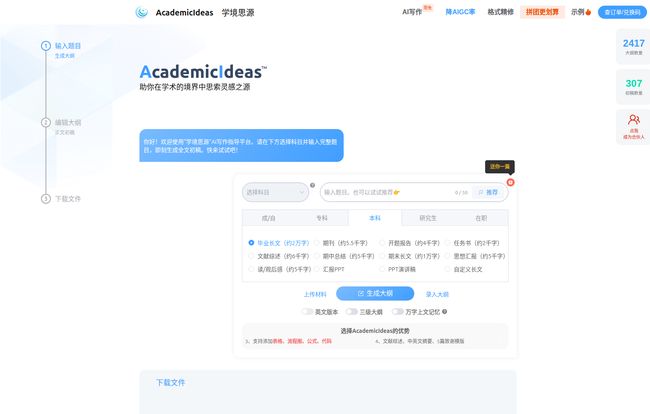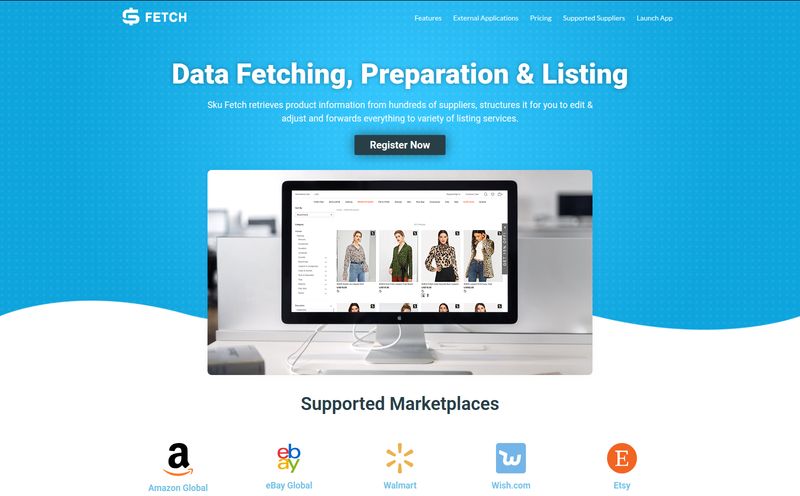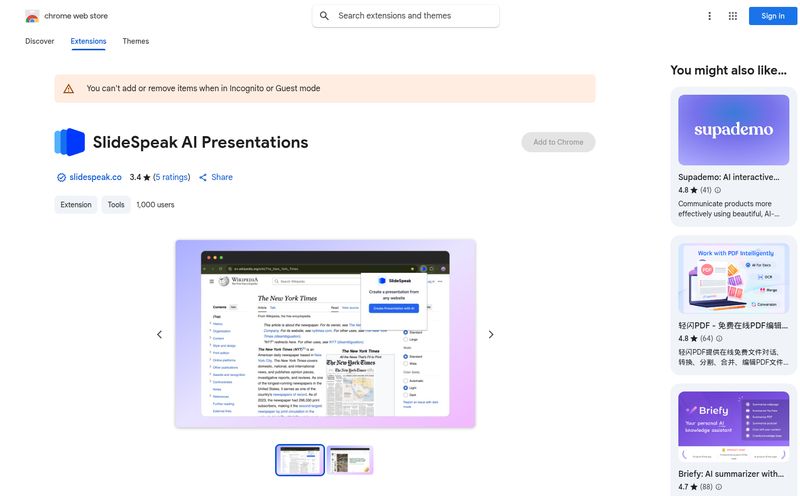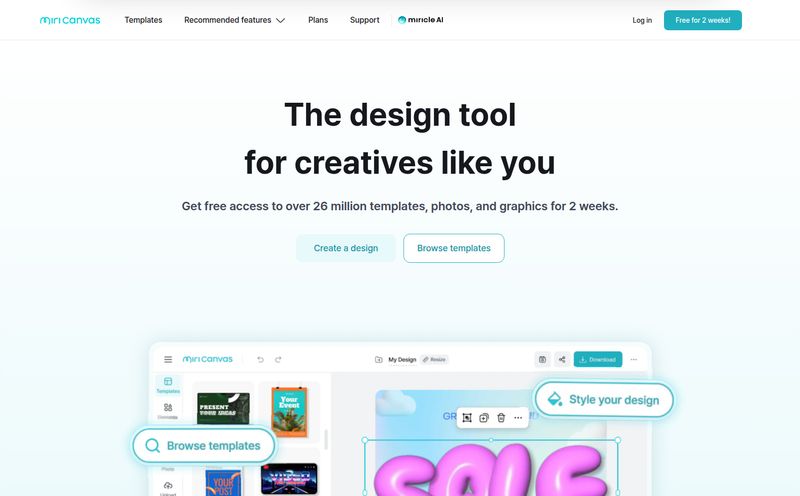Ah, the blinking cursor. The arch-nemesis of every student, researcher, and writer on the planet. It sits there, pulsing, on a stark white screen, a silent monument to the ten-thousand-word thesis you haven’t started yet. I’ve been there. We’ve all been there. Fueled by questionable coffee and the sheer terror of a looming deadline, you pray for a spark of inspiration. Anything.
In the last couple of years, that “anything” has started to look a lot like Artificial Intelligence. A whole new crop of AI writing tools has sprung up, promising to slay the dragon of writer's block for good. And today, we’re looking at one that’s laser-focused on the ivory tower: AcademicIdeas. The name itself is pretty on-the-nose, isn’t it? But does it deliver, or is it just another shiny object promising a shortcut that doesn't really exist? Let's get into it.
So, What is AcademicIdeas, Really?
At its core, AcademicIdeas is an AI-powered platform designed to be a sort of co-pilot for your academic writing. It’s not just a fancy thesaurus or grammar checker. We're talking about a tool that claims it can help you generate entire papers from a single topic. It’s built to help you with the heavy lifting: creating outlines, structuring your arguments, and even churning out that all-important first draft.
From what I've seen of its interface, it’s a pretty straightforward three-step dance: 1. You feed it a title. 2. It generates and expands an outline. 3. You download the resulting document. It's designed to take you from zero to something very, very quickly. And that something can be a graduation thesis, a literature review, a research proposal, and a bunch of other document types specific to student life.

Visit AcademicIdeas
It seems to be targeting the Chinese student market heavily, with its interface in Chinese and options tailored for different degree levels from associate to graduate studies. The platform even boasts it’s using some serious tech, referencing Alibaba Cloud's Qwen large model. So, this isn't some weekend project; there's real firepower under the hood.
The Good, The Bad, and The AI-Generated
Like any tool, especially one this powerful, it's a mixed bag. I’ve been in the content and SEO game long enough to know there’s no magic bullet. Every new technology comes with its own set of blessings and curses. AcademicIdeas is no different.
The Upside: Your New Over-Caffeinated Research Assistant?
The biggest win here is speed. Beating writer’s block is its main selling point. Instead of spending hours—or days—agonizing over a structure, you can get a functional outline in minutes. I've always felt that the hardest part of writing is just starting; it’s like trying to push a boulder. A tool like this gives you that initial shove.
It provides a skeleton, a framework for you to build upon. For students who struggle with organizing their thoughts, this could be a genuine game-changer. It also has features for plagiarism reduction, which is a neat touch. It’s not just writing for you, it's trying to help you write better and more responsibly. Think of it less as a ghostwriter and more as a brainstorming partner who never needs to sleep.
The Potential Pitfalls: A Double-Edged Sword
Now for the other side of the coin. The platform’s green button cheekily says, “Instantly generate a perfect first draft.” As a writer, that phrase makes me laugh. There's no such thing as a perfect first draft, human or AI-generated. The output from these tools almost always requires significant revision. You are the expert on your topic, not the AI. It might generate text that sounds plausible but is factually incorrect or lacks the deep, nuanced thinking an actual acadmic paper requires.
And that leads to the bigger issue: originality and critical thinking. Relying too heavily on AI can turn your brain to mush. It's like using a calculator for basic math—super helpful, but if you forget how to do addition yourself, you're in trouble. The real value of writing a thesis isn't just the final document; it's the process of research, synthesis, and developing your own arguments. Outsourcing that process wholesale feels… well, it feels like you're missing the point.
A Look Under the Hood at the Features
Let's break down the actual machinery. Based on the specs and the interface, here’s what AcademicIdeas brings to the table:
- AI Paper Generation: The main event. You give it a prompt, and it writes. It can handle different lengths, from a 1,000-word task letter to a hefty 10,000-word graduation thesis.
- Automatic Outlining: This, for me, might be the most valuable feature. It creates a logical structure (like a three-level outline) that you can then flesh out with your own research and voice.
- AI-Driven Revision: The tool can also help you revise your work, although the specifics on how deep this goes are a bit fuzzy. I imagine it’s more than just grammar, likely helping with tone and flow.
- Plagiarism Reduction: It actively works to create original text. This is a big deal for academic integrity, but it still puts the final responsibility on the user to check the work with a tool like Turnitin. Never trust, always verify.
The ability to select your academic level (bachelor, graduate, etc.) is a smart move. The writing style and complexity needed for a final-year undergraduate paper are vastly different from a master's thesis. It shows a level of thought went into who would be using this.
The Million-Dollar Question: What's the Price?
Here’s where things get a bit mysterious. As of my investigation, there’s no clear, public pricing page for AcademicIdeas. This isn't uncommon for new tools or those targeting a specific market through channels like WeChat, where the model might be pay-per-paper, a subscription, or some sort of credit system.
If I were to guess, it's likely not free for a full 10,000-word download. There might be a free trial to generate an outline or a small portion of text to get you hooked. The lack of transparent pricing is a bit of a red flag for me, but it could just be a different marketing strategy. You’ll probably have to engage with their QR code to find out the real cost.
My Two Cents: Should You Actually Use It?
So, here we are. The big question. As someone who loves technology but also deeply values the craft of writing, I'm cautiously optimistic.
Here's my take: AcademicIdeas is a tool, not a solution.
If you use it as a crutch to avoid doing the hard work of thinking, you're not only risking academic dishonesty but you're also robbing yourself of an education. The output of any AI writer should be seen as raw material. It’s a lump of clay, not a finished sculpture. It’s the starting point, not the finish line.
However, if you use it as a brainstorming partner to break through a creative wall, or as an outliner to help structure a complex topic, then it could be incredibly powerful. Use it to generate ideas. Use it to build a foundation. But then, you must step in. Rewrite it in your own voice. Verify every single fact. Add your own unique insights and analysis. The final product that you submit must be unequivocally yours.
The ethical debate around these tools in academia is just getting started, and as Stephen Marche noted in The Atlantic, the bigger question isn't how we're going to stop students from using this, but how we're going to adapt education to a world where it exists. It's a paradigm shift, and we're right in the middle of it.
Frequently Asked Questions
- What exactly is AcademicIdeas?
- AcademicIdeas is an AI-powered platform specifically designed to help students and researchers with academic writing. It can generate outlines, draft papers, and assist with revisions for various academic documents like theses and literature reviews.
- Who is this tool for?
- It's primarily aimed at students at various levels (from associate to graduate) who need to produce structured academic papers. Based on its design, it seems particularly focused on the Chinese-speaking student population.
- Can AcademicIdeas write a complete, ready-to-submit paper for me?
- While it can generate a full draft, it's highly advised not to submit it directly. AI-generated content can contain inaccuracies, lack nuance, and may not meet academic standards without significant human editing, fact-checking, and personalization.
- Is using a tool like AcademicIdeas considered cheating?
- This is a complex ethical area. If you submit AI-generated work as your own, yes, most institutions would consider that plagiarism or academic misconduct. However, using it for brainstorming, outlining, or as a writing assistant to overcome writer's block is more of a gray area. Always check your institution's specific policies on AI usage.
- How does it help with plagiarism?
- The tool is designed to generate original text, which can help reduce accidental plagiarism. However, the final responsibility lies with you. You should always run the final paper through a reliable plagiarism checker and properly cite all your sources.
- What languages does it support?
- The primary interface is in Chinese, but the UI shows an option for an 'English version', suggesting it has multilingual capabilities, though its proficiency in English compared to Chinese is unknown.
Final Thoughts
Look, the world of SEO and content is constantly being reshaped by AI, and academia is no different. Tools like AcademicIdeas aren't going away. They're going to get smarter, more integrated, and more capable. Banning them is a fool's errand. The real task is learning how to work with them responsibly.
So, is AcademicIdeas a helpful assistant or a dangerous crutch? It's both. The outcome depends entirely on the user. If you're looking for a magic wand to make your thesis write itself, you're going to be disappointed (and possibly in trouble). But if you’re looking for a powerful ally to help you organize your thoughts and get words on the page, it might just be the spark you need. Just promise me you'll do the real thinking yourself, okay?
References and Sources
- Marche, Stephen. "The College Essay Is Dead." The Atlantic, December 2022, www.theatlantic.com/technology/archive/2022/12/chatgpt-ai-writing-college-student-essays/672371/.
- Alibaba Cloud. "Qwen-VL Large Vision Language Model." Alibaba Cloud, www.alibabacloud.com/en/product/bailian/qwen-vl.



